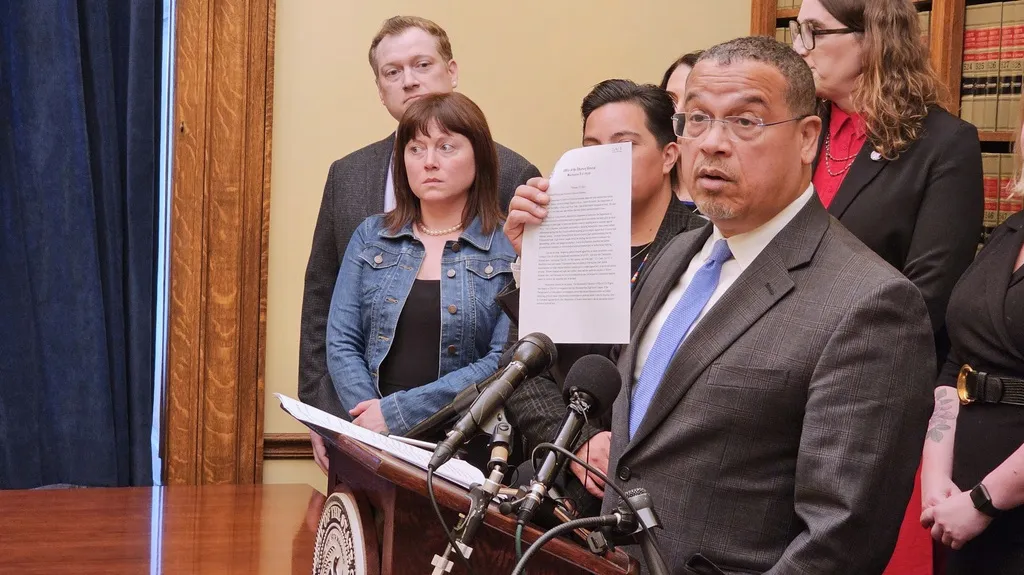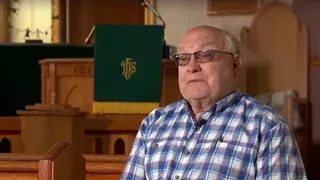February 21, 2016
Indiana House Committee Tosses Hate Crimes Bill
READ TIME: 3 MIN.
Legislation creating the state's first hate-crime law to help victims targeted because of their race, sexual identity, religion or other specified characteristic is expected to die because it won't get a committee hearing in the House, leaving lawmakers few options to address civil rights this year.
The measure was introduced as Indiana faced criticism following the Republican-led Legislature's approval of a religious objections law that, even after changes, opponents said invited discrimination against the lesbian, gay, bisexual and transgender community. Sen. Susan Glick, a Republican from LaGrange who authored the bill, said her proposal would help show that Indiana is a welcoming place.
"It's really unfair for the state as a whole to be labeled as bigots because we are really not," Glick, whose bill was co-sponsored by Democrats and Republicans, said earlier this month.
The Senate approved the legislation, which calls for creating a hate-crime designation allowing for tougher sentences by taking into account a victim's "perceived or actual race, religion, color, sex, gender identity, disability, national origin, ancestry or sexual orientation." According to the state police, there have been 45 to 55 incidents per year since 2011 that would qualify as hate crimes under the legislation.
The bill was scheduled to be heard next week - the last week for committee hearings in the Legislature - in the House Courts and Criminal Code Committee. But its chairman said the panel doesn't have enough time. The committee also has bills that would enhance domestic battery and child exploitation punishments, create a child abuser registry, and alter how judges are appointed in Marion County.
"As a committee chairman, what is driving me is simply time," said Rep. Thomas Washburne, a Republican from Evansville who has opposed the measure. "If you can only do so many bills, you're going to do the ones that have the most substantive change."
The decision means lawmakers could end the year with no course of action on extending civil rights protections. The bill could get taken to conference committee, dominated by Republicans. And House Minority Leader Scott Pelath said he hasn't ruled out proposing more amendments to legislation still in the pipeline.
Bill co-sponsor Rep. Randy Truitt, a Republican from West Lafayette, said the measure was an opportunity forIndiana to join 45 other states that have some form of hate-crime laws on the books. Truitt said he wouldn't strip LGBT protections from the measure, even if that would push the bill forward.
Truitt said he was disappointed the bill won't be heard by the committee, but he noted that an amendment addressing the same issues could be attached to another bill.
"I know it's a short session, so we only have a certain period of time to deal with these bills," he said Saturday.
Opponents have long argued that the legislation - and similar efforts to add a hate-crime designation toIndiana law - wasn't necessary because the criminal code doesn't restrict a judge from considering bias. There also have been concerns that such laws would help elevate one type of crime over others that could be equally brutal.
But supporters argue that hate crimes are premeditated and meant to intimidate entire communities, so courts need to be able to hand down harsher punishments.
Indiana law requires law enforcement agencies to report bias crimes. But once the cases get to court, there is no special consequence for defendants convicted under current law.
On Thursday, the House voted down another civil rights measure that would have protected people from being fired because they were gay, lesbian, bisexual or transgender. The proposal came as an amendment to another bill, and House Speaker Brian Bosma said adding the language to the existing bill was inappropriate.
"That was a really procedural issue, and I think a lot of folks that even might support a protected class status didn't think it's appropriate to put it on a bill in second reading without public testimony," Bosma said.
Truitt said the fact that the House voted on the LGBT amendment made him hopeful the chamber was willing to debate the issue.
"It proved that if it's germane, we will deal with it," he said.




